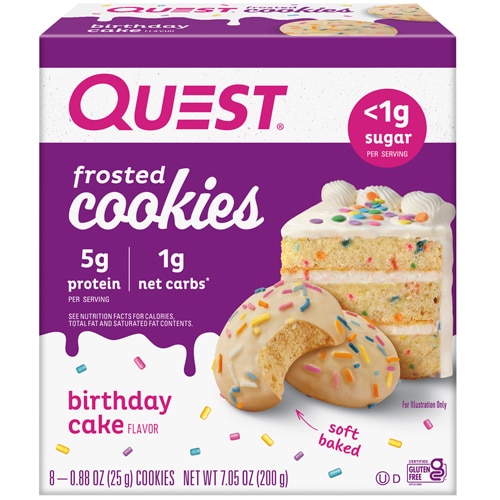[vc_row][vc_column][vc_column_text]Millions of people struggle with "yo-yo dieting." They try hard to lose weight and succeed, but then feel the sting of seeing the extra pounds eventually return.
So, they try to lose weight again, only to have the cycle repeat over and over.
This pattern of losing and gaining weight is just one of the negative aspects of yo-yo dieting, however.
“The act of repeatedly losing and regaining weight can impact health in many ways,” says
Caroline West Passerrello, a registered dietitian nutritionist and spokesperson for the Academy of Nutrition and Dietetics.

Why do people ‘yo-yo diet’?
For most people, weight cycling is a bit of an accident.
“In my experience with clients, they do not set out to yo-yo diet,” says Passerrello, who is also an instructor at the University of Pittsburgh.
She says the “yo-yo effect” is a result of folks setting a target weight as their end goal and focusing heavily on that number and factors within their immediate control.
In doing so, they often overlook the diet, lifestyle and environmental changes necessary to support their goal over the long term.
“So, when they reach the goal weight, often they are not able to maintain the lost weight, and the cycle repeats,” Passerrello says.
How yo-yo dieting negatively impacts health
No one is sure why yo-yo dieting may be bad for the heart, but several studies have found such a link. One study found that the risk of heart disease doubles in those who experience large variations in weight over time.
A separate study of nearly 10,000 adults found that the more weight you lose and eventually regain, the greater the
potential risk to your heart's health.
Overall, research has found that women who find themselves on the treadmill of weight cycling are especially likely to be at greater risk for cardiovascular disease than those who maintain a consistent weight.
The results are less clear in regard to men, as some studies have found a
higher risk of heart disease among men who yo-yo diet while other research has not.
The negative health impacts of yo-yo dieting extend past the potential danger to your heart.
Research also suggests that over time, those who yo-yo diet add more fat to their bodies while losing more muscle.
That is because losing weight causes you to lose both fat and muscle, but fat returns more quickly when you regain the pounds. In addition, your appetite is elevated until the muscle comes back, putting you at risk of gaining even more weight.
Weight cycling also may:
- Raise the risk of gallstones
- Alter gut bacteria in negative ways
- Boost levels of cortisol, the so-called "stress hormone"
- Increase the risk of diabetes
- Raise blood pressure
Why yo-yo dieting often fails
One of the reasons yo-yo dieting fails is that when the body drops pounds, it also loses the fat cells that produce a hormone called leptin. This hormone signals to your brain when you have stored up enough fat.
Lower levels of leptin in the body tend to make you hungry. In addition, your body processes slow down to save energy.
Once you quit the diet and begin eating normally again, your appetite roars back, but your body processes are still in slow-motion mode. That can lead to
even more weight gain.
Passerrello says it’s important to remember that weight management is multifactorial and is “not something completely within an individual’s control.”
If someone loses weight but does not – or cannot – change their lifestyle, environment or other social determinants of health, “there is a strong chance they will not be able to maintain the lost weight,” she says.
“Research shows chronic weight gain and loss impacts hormone regulation and metabolic processes,” Passerrello says. “So, over time, the body makes losing weight more difficult.”
Alternatives to yo-yo dieting
Because of the poor track record of yo-yo dieting, it makes sense to seek other alternatives to losing weight.
When Passerrello works with clients interested in
weight loss, she focuses on several factors, including the client’s behaviors, past medical history, environment and even their values.
The discussions go beyond simply trying to achieve a negative energy balance --
eating fewer calories than the body requires.
“We discuss what is and is not within their control, and we discuss ways to make values-based changes that are realistic, sustainable and meaningful to that person,” she says.
Overall, Passerrello stresses that
obesity is a disease, and that the term “yo-yo dieting” does a disservice to those who struggle to lose weight and keep it off.
“For folks who have
obesity, know this can be a chronic and relapsing disease,” she says.
“We need to think about the terminology we use and what we are saying. Would we compare relapses of other diseases to a yo-yo?”
If you struggle with weight cycling, Passerrello encourages you to step back and ask yourself why this might be the case. Doing so can help you get to the root cause of the issue.
“If you find this level of self-reflection difficult, find a registered dietitian nutritionist that takes a systems-level approach to weight management and cognitive behavioral therapy,” she says.[/vc_column_text][/vc_column][/vc_row][vc_row][vc_column][vc_text_separator title="Featured Products" border_width="2"][vc_row_inner equal_height="yes" content_placement="middle" gap="35"][vc_column_inner width="1/3"][vc_single_image image="178915" img_size="full" alignment="center" onclick="custom_link" img_link_target="_blank" css=".vc_custom_1728938879778{padding-right: 7% !important;padding-left: 7% !important;}" link="https://www.vitacost.com/liddell-homeopathic-weight-loss-xl"][/vc_column_inner][vc_column_inner width="1/3"][vc_single_image image="178914" img_size="full" alignment="center" onclick="custom_link" img_link_target="_blank" css=".vc_custom_1728938895117{padding-right: 7% !important;padding-left: 7% !important;}" link="https://www.vitacost.com/codeage-glp-advantage-chromium-berberine-gymnema-resveratrol-glp-1-activity-support"][/vc_column_inner][vc_column_inner width="1/3"][vc_single_image image="178913" img_size="full" alignment="center" onclick="custom_link" img_link_target="_blank" css=".vc_custom_1728938912990{padding-right: 7% !important;padding-left: 7% !important;}" link="https://www.vitacost.com/real-ketones-keto-weight-loss-powder-sticks-shift-caffeinated"][/vc_column_inner][/vc_row_inner][/vc_column][/vc_row]




